#it is my thesis statement.
Note
What uh. What's the frog story 👀
back when i was in second grade, my elementary school organised a school market with every class selling their crafts for charity. the contribution of my class were hand-sized ceramic frogs we made in art class. each one of us made one of them to be sold for five euros a piece (this is important later). the quality of the frog i made varies drastically based on who is telling the story, and for reasons that will become very apparent later there is no way to check, but i stand by the fact that it was average looking, if a bit wonky.
the day of the market arrived, and all frogs were bought within minutes, snatched up by enthusiastic and proud parents. all except - mine. because my mother hates spending money on unnecessary things, and she hates children's crafts even more. so she - loudly and vehemently - refused, in her thick eastern european accent, to "spend five euros on an ugly frog".
i will never forget seeing my ceramic frog alone on the slightly wet cardboard, surrounded by the imprints left behind by the already sold frogs. all the while other parents are getting more and more agitated, trying to get my mother to put the frog out of its misery. eventually, she budged, and spend five euros on a wonky frog. she was absolutely furious about this.
so furious, in fact, that when we came home to where my father was remodelling the kitchen, she WALLED IT IN. that's right. she cask of amadillo'd that poor ceramic fool. put him into the open wall and slapped concrete over it faster than my poor seven year old self or my dad could protest. out of pure anger over loosing five euros. and that's where it remains, until this day.
my mom hates when this story is brought up, which is why we bring it up all the time. she also thinks she what she did was right, because "do the other parents know where the frog is? no. only your creation is safe. because i love you." morally, i would disagree, but on a pure factual basis, she has a point.
i made her another ceramic frog for her last brithday, which was not buried like some pharaoh, and everytime guests compliment it my brother loudly goes "oh you should see the other frog he made" and when they ask to see it, he points at the wall. this is hilarious to him and infuriating for my mother. and that's the frog story.
#my mom is insane but she loves us to be very clear#everyone who i tell this story irl goes oh yeah. that makes sense.#it is my thesis statement.
34K notes
·
View notes
Text

plight of the honeybee
#dimension 20#dimension 20 spoilers#d20 neverafter#neverafter spoilers#d20 spoilers#prince gerard of greenleigh#the fairy godmother#fanart#my art#aka what if i took the funniest bit in ep 8#and made it sad. what about that#also here’s the thing. i saw some speculations about#the plight of the honeybee returning for a really sad moment in the future#and this is my thesis statement. that it has already happened#that’s all#good night
10K notes
·
View notes
Text
The Blind Bandit | The Bullpen
[video description: an amv of Toph as the Blind Bandit set to The Bullpen by Dessa, focused on her earthbending skills fighting in Earth Rumble VI. the ending sequence shows her leaving her home to join Aang, Katara, and Sokka. end description.]
forget the bull in the china shop / there's a china doll in the bullpen
#toph#the blind bandit#just a simple little vid this time#an ode to my favorite earthbender :)#but not a thesis statement. yk?#ive had this amv idea in my mind for Literal Years. crazy that its here now!#amv#she literally found this here ladder (earth bending as a mobility aid) and got glass floors (became best earth bender in the world)#is the thing!#vid#r.post
1K notes
·
View notes
Text
it’s like when i choose to see the good side of things, i’m not being naive. it’s strategic and necessary. it’s how i learned to survive through everything btw. if you even care
#THIS is the line that sends me into sobbing hysterics for the rest of the film#these lines are my thesis statement as a human being#eeaao#everything everywhere all at once#strq.txt
36K notes
·
View notes
Text

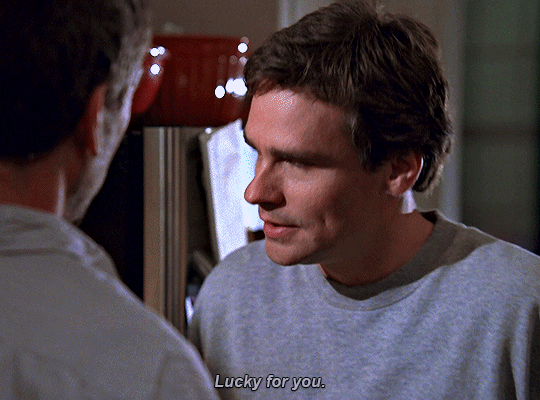
House M.D. | 2x19 House vs. God
#greg house#james wilson#hilson#houseedit#housemdedit#house md#house 2x19#tor gifs#one of my fave episodes#its a thesis statement on wilson as a character#but naturally by extension house as well#cause u cant talk about one without also discussing the other
5K notes
·
View notes
Text
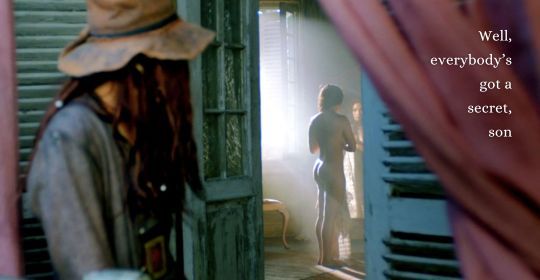
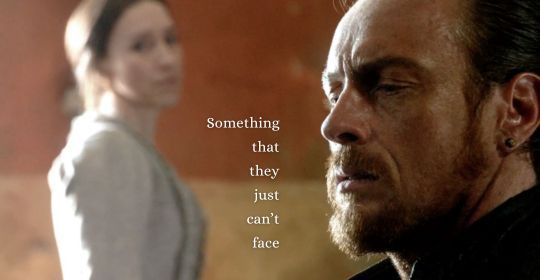
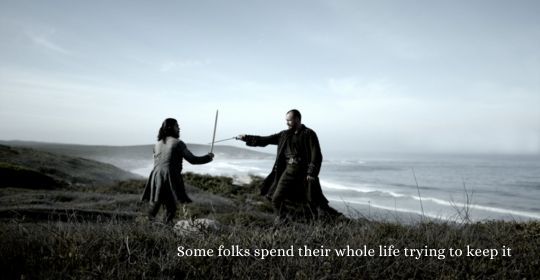

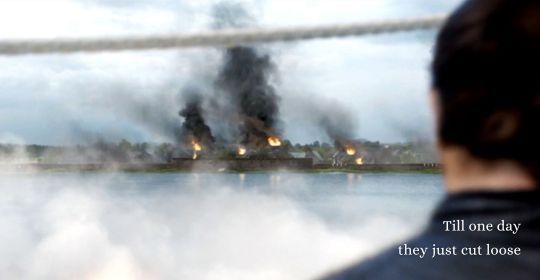
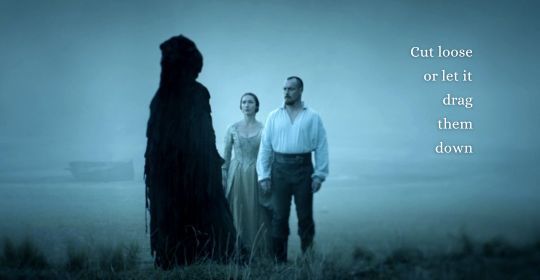
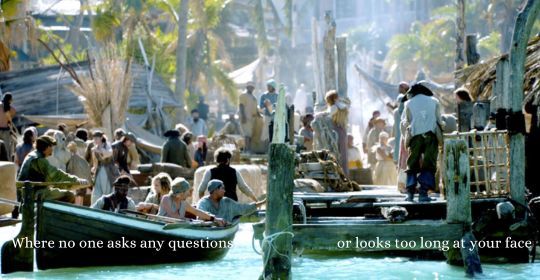


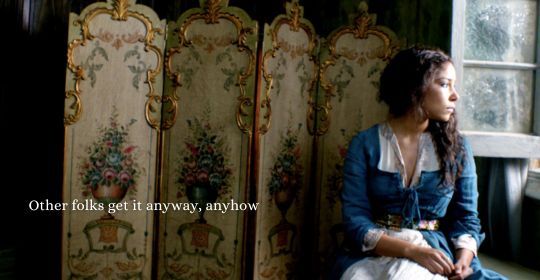
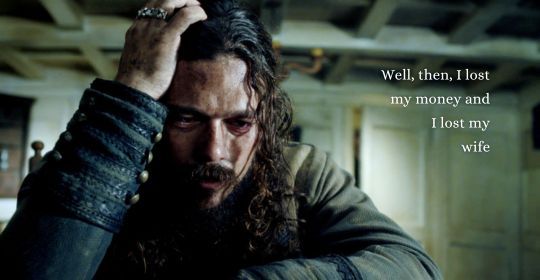


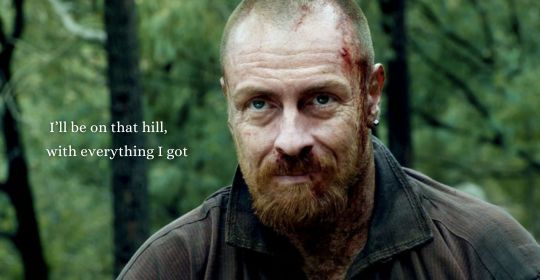
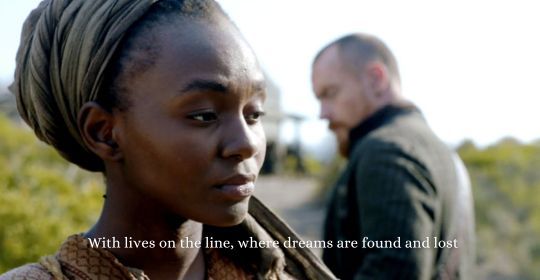

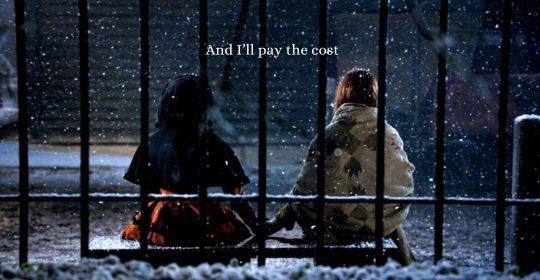
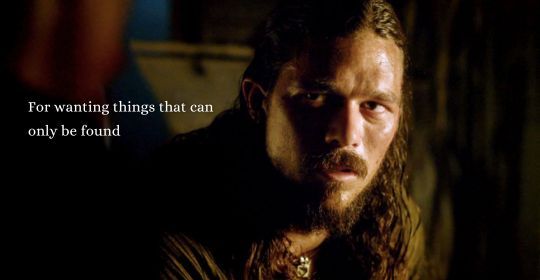
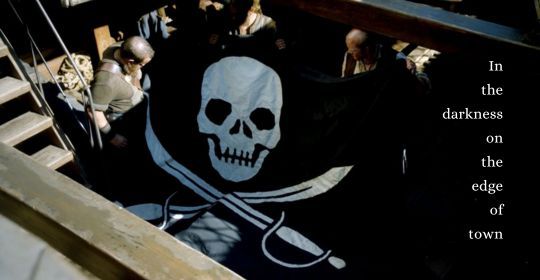
In the darkness, there be dragons. But it isn't true. We can prove that it isn't true. In the dark, there is discovery, there is possibility, there is freedom in the dark once someone has illuminated it. And who has been so close to doing it as we are right now?
Darkness on the Edge of Town by Bruce Springsteen / Black Sails (2014-2017)
#black sails#blacksailsedit#bsedit#uhhhhh what to even tag this#bruce sailsteen. whateven am i saying.#here is my darkness on the edge of town thesis statement. love u all good night!#bruce springsails
416 notes
·
View notes
Text
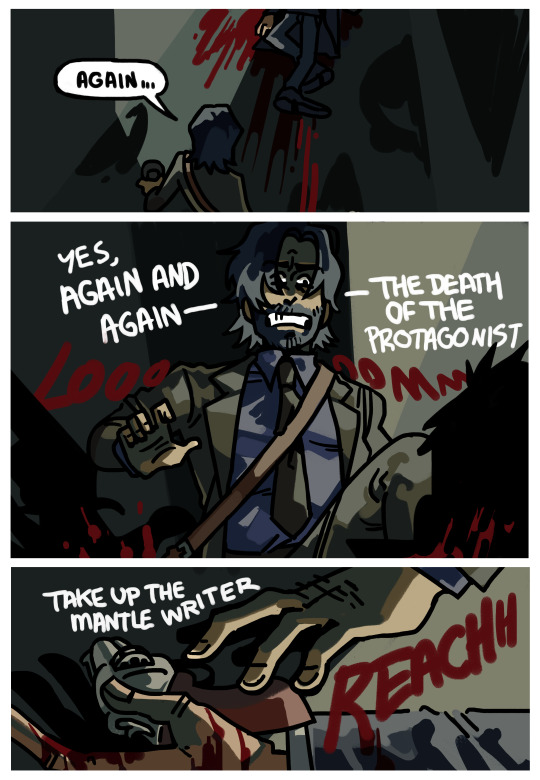
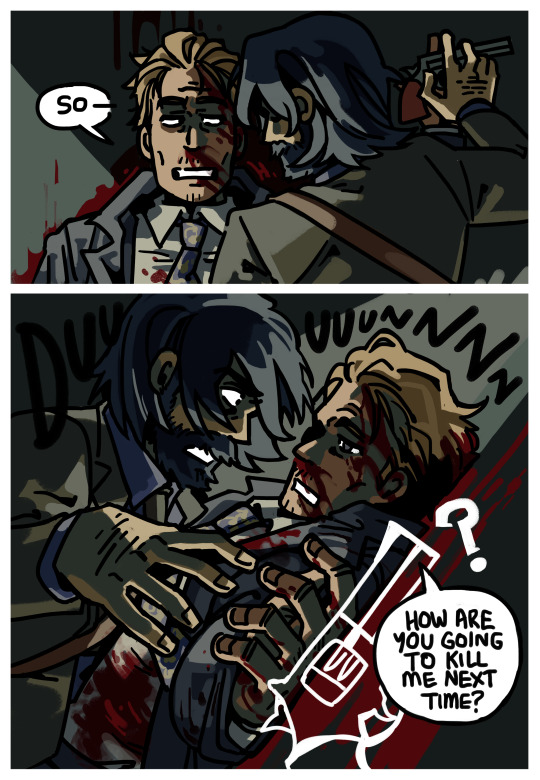
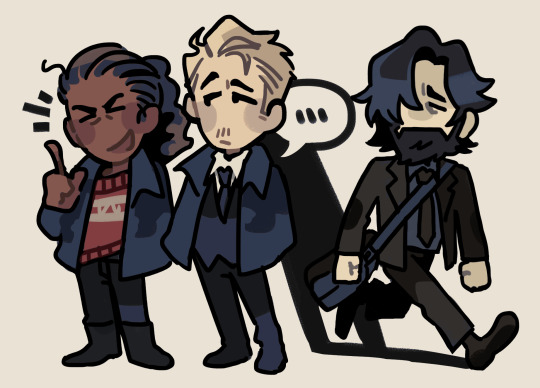
hitting my toxic yaoi quota + chibi doodles
#chipchopdraws#alan wake#alan wake 2#aw2#blood#alex casey#saga anderson#what if u made a guy and you had to keep killing him but he knew you were doing that and hated you but also hes not real but also he is rea#< my thesis statement for that comic#i have other wips im too laxy to clean up rn but know saga and casey also mean evertything 2 me#does this technically count as max payne yaoi as well. think on that one readers
610 notes
·
View notes
Text

wild and wandering death flag
#little goody two shoes#rozenmarine#elise lgts#freya lgts#lebkuchen lgts#thesis statement why rozenmarine is my favourite#love me some absolutely insanely cursed existence
423 notes
·
View notes
Note
what ARE your addison thoughts? i know you said spamton isn't one, but do you have any other opinions on them?
what does it mean when noelle kills the pink addison?
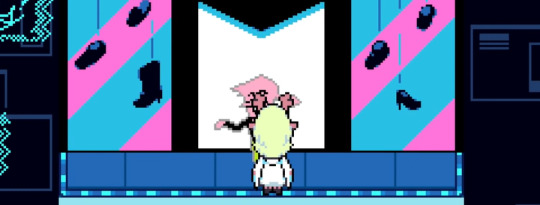
after all, they're not a huge character. sure, the music cuts out after you kill them, and it is framed as a horrific thing, but you can still back out of the snowgrave route at any time afterwards. their and the other darkners' deaths are able to be smoothed over quite easily -- too easily. the game merely treats it as though you didn't recruit them. berdly is the only one that snaps noelle out of her trance -- and as well, he is marked as the point of no return, the divergence point of snowgrave. but why?
in the world of deltarune, to be "real" is a metric of power. the more "real" one is within the system of deltarune, the more power one has. we stand at the top as players -- existing on the highest plane of "reality", our reality. the lightners are a level below that -- lines of code and dialogue in the game of deltarune that we play. the darkners exist on the lowest level -- as the lightners are video game characters to us (both literally and figuratively, as mirrors of undertale's cast), the darkners are mere objects to the lightners. it's a system that reflects all the way down. we "determine" the fates of the lightners, and the lightners "determine" the fates of the darkners.
of course, each level of reality is still a reality. the darkners are no less of people than the lightners, and the lightners are no less of people than us. but that doesn't mean this power metric exists merely in the characters' own heads, nor is it something simply realizing one's own worth can overcome. it is a real system baked into the world of deltarune, one that exists to oppress and govern the people within it. this "layered reality" and the power dynamics that divide it are tangible, constricting, and horrifying.
in snowgrave, we see this come into play when we kill the darkners. noelle becomes conditioned to see them as "enemies". the snowgrave run is also faster, quicker -- you can "clear" the dark world and get to the coveted, "more real" light world faster that way. even gaster doesn't treat the darkners as important -- ralsei does not get to be "very, very special" like the others. and you can back out of the snowgrave route at any time, so long as you don't kill berdly -- a lightner. someone "more real".
i tend to stay away from connecting undertale to deltarune too much via "plot facts" and the such. taking the darkners to the light world, for example, is not the solution to deltarune's conflict, as it is not a one to one mirror of undertale's. but there are a number of symbolic and thematic ideas that come up in both games. the darkners in deltarune are framed much like the monsters were in undertale -- the "enemy" character type.

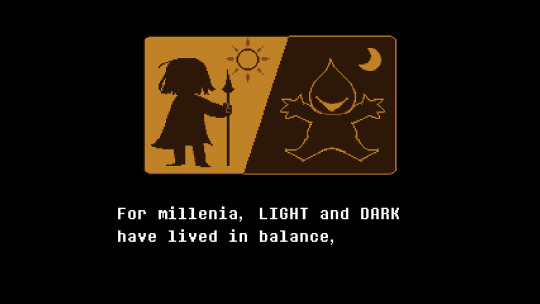
but what measure is an "enemy", anyway? don't these "enemies" deserve to be treated like people, too?



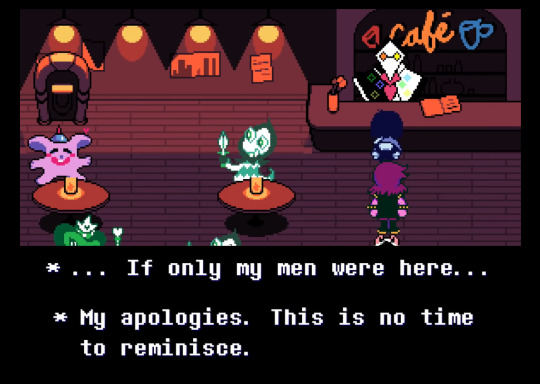


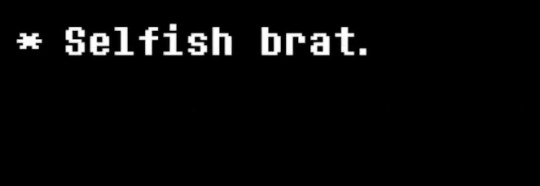


#ooc#pink addison#deltarune#weird route#this one got WAY out of hand. and kind of veered into my thesis statement for deltarune as a whole. whoops!#i think about those recontextualized lines post-snowgrave so much. OUCH. ouch.
639 notes
·
View notes
Text


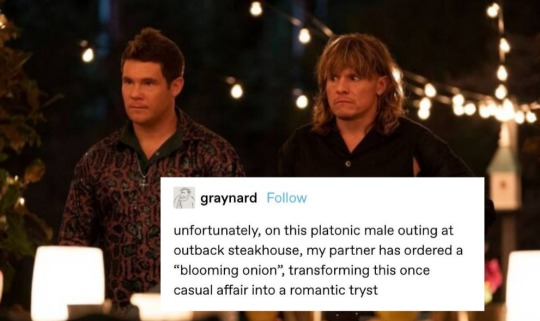

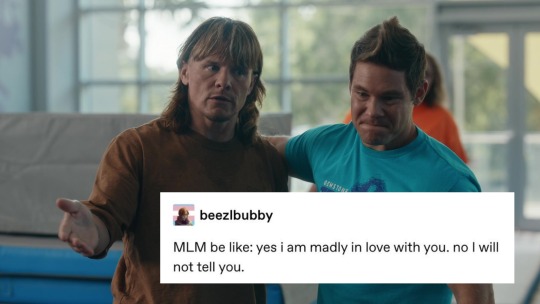
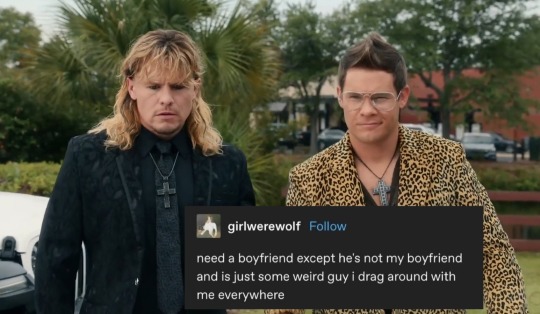

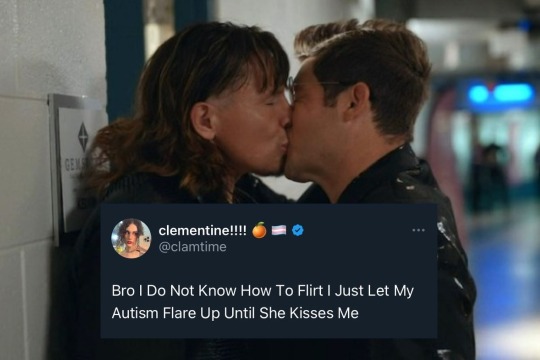
keefe + kelvin as tweets/text posts. three seasons later they've made one (1) move
(BJ + judy version | amber + jesse version)
#kelvin gemstone#keefe chambers#the righteous gemstones#mine#last one is my whole thesis statement on their relationship
541 notes
·
View notes
Text
Trafalgar Law and Faith
Pre-emptive warning this is going to be another LONG metapost/analysis. There’s a lot I could talk about here but for the sake of structure I’m going to split this into three sections, i.e. the main ‘faith transitions’ that Law has gone through in the narrative thus far: 1. Flevance (catalyst for loss of religious faith), 2. Corasan (martyr that figuratively and literally saves law by giving him something to live for, introducing the will of D.), and 3. Luffy (cementing faith in this new belief system and regaining trust in the goodness of humanity through the living embodiment of everything Corasan believed in).
Before we get into all that though, let’s establish that Christianity is a thing in one piece. Speedrunning through some visual examples that come to mind; the Flevance church and nun (holding a celtic cross - censored in the anime version), a nun literally praying to God right before Marineford, Vinsmoke Sora’s grave marked with a cross (is op Christianity a northern thing?), Usopp and Chopper having crucifixes and holy water whenever ghostly stuff is brought up, Kuma and his trusty bible, the religious symbols on Kikoku’s hilt (could instead be more a reference to the Red Cross/symbol of humanitarian and medical aid as a doctor) and especially in whatever Mihawk’s got going on (though this could just be a Japanese cultural thing with Christianity being a minority religion or Oda just finding that some of the iconography, y’know. looks cool). There are also many other references to other religions e.g. hinduism, shintoism, buddhism, etc. Whether op forms of religion are the same as the real-world ones is debatable, and yes, Law being canonically raised as a devout catholic schoolboy with all the religious trauma associated with that is comical, but let’s take it all unironically for a hot minute. For fun.
1. Flevance
Law’s birthplace (Flevance) is described as being, at one point, “a very wealthy country with an unearthly beauty about it, with pure white soil and plants, like some kind of snow kingdom in a fairy tale.” The country’s wealth came from the very bedrock it sits on — white lead, which could be used to make various high quality products like tableware, cosmetics, weapons etc. When the wider world heard about this everyone wanted a piece of Flevance (the World Government also getting involved with distribution), and very quickly white lead became a “bottomless well of money”. So, hooray. Law gets to grow up in a rich city in a big house with educated doctor parents and probably gets to go to private school on weekdays and festivals with his family on weekends. One problem. In their greed, the Government and royalty have been knowingly hiding the truth about this supposed goldmine from the beginning. White lead is a toxic poison. Mining it from the ground over the last century and putting it in so many everyday products has resulted in it accumulating in the citizens’ bodies and leading to amber lead sickness, shortening their life-span with each successive generation – with the children of Law’s generation fated to die out before they reach adulthood.
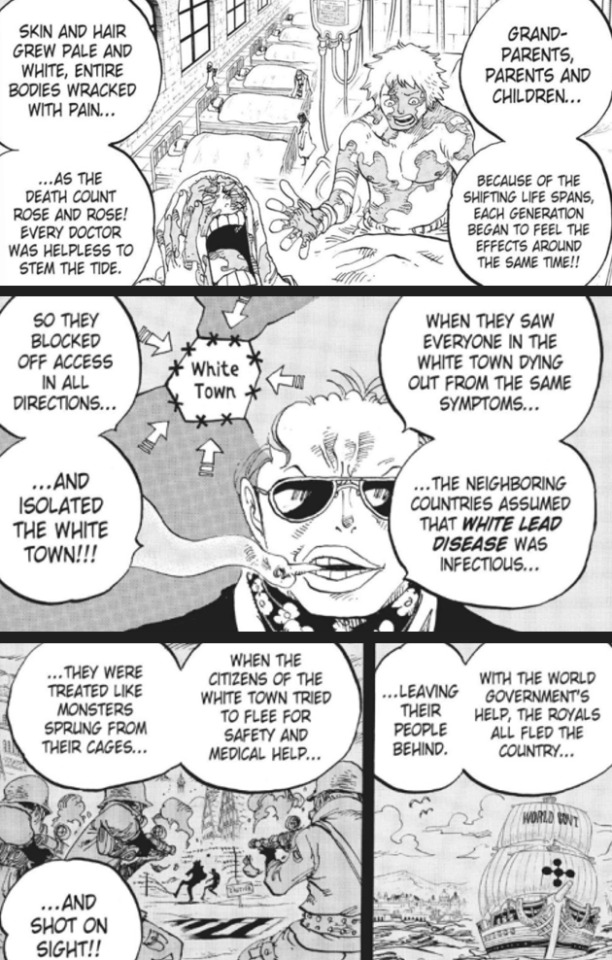
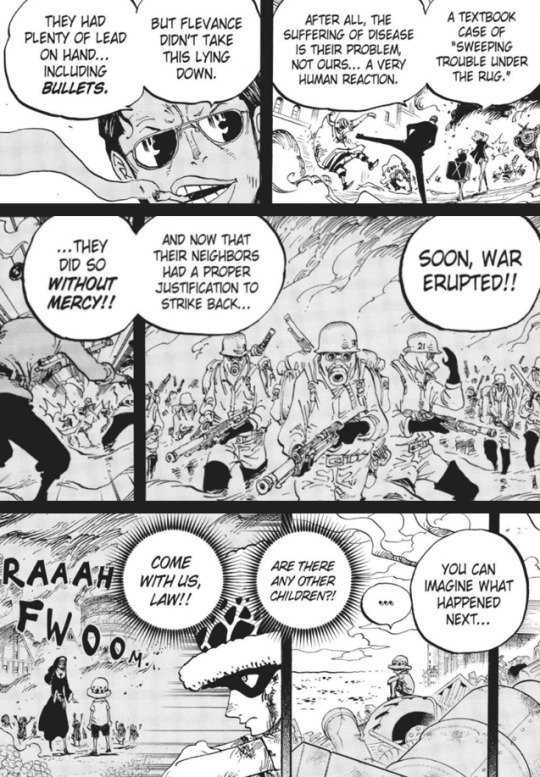
In the bible (especially in the old testament), God often inflicted these insanely disastrous events upon humanity, usually as some kind of punishment for their wrongdoings or as a test of their faith. Some events of which include (but are not limited to): famine, outbreaks of disease and natural disasters (e.g. hail, wildfire, earthquakes, floods). Historically, these stories played a key role in how humanity interpreted meaning from horrible disasters (e.g. assuming bubonic plague was sent as a punishment by god). Fire imagery is very common among these disasters as a representation for hell, which is clearly reflected in the destruction of Flevance.
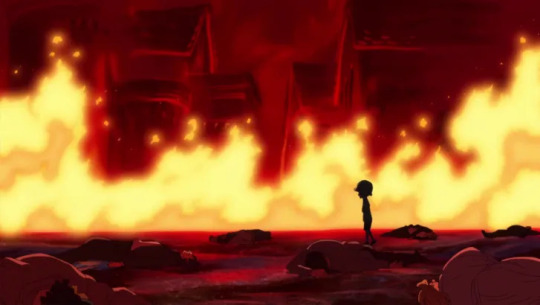

Sometimes these disasters had sole survivors act as messengers for God. With that context, let’s put ourselves back in the shoes of a ten-year old Law. Raised religious, freshly traumatised from losing his home, his devout family, all the comforts of his life, and having the outside world completely abandon him, this kind of event is likely going to be processed as some form of divine punishment. Law stumbles through hell, finds all his dead classmates, and the last words of sister nun echo through to him here. Merciful and salvation are huge catholic buzzwords – promises of holy compassion, deliverance and hope – and all of it fire and smoke and riddled with bullet holes before him. A genocide funded, perpetuated and covered up by the same body Law was promised was there to save them. And the only reason Law hadn’t died with them was because he wanted to stay with his little sister Lami, who was on her deathbed, and his parents, who were themselves trying to help the afflicted citizens, Law’s own father (before he was shot and killed alongside his mother) begging for more doctors, fresh blood, anything the world can offer, and asking “Why doesn’t the government announce to everyone that white lead is not infectious?”
Oftentimes (and in the case of Law), when there’s a promise of heavenly intervention or some miracle that doesn’t follow through, it results in an ultimate feeling of betrayal and anger. Unfortunately a lot of Catholic teachings also use a lot of guilt, essentially teaching people that the bad things that happen to you are your fault and there needs to be some sort of penance (queue Law’s survivor’s guilt that carries on down the road). But also, if this was supposed to be some divine punishment, for what exactly? For the town being blinded by the incredible wealth they were sitting on? Being lied to? Continuing to extract their livelihood, ignorant of its dangers? Punishment for who? His parents? His innocent little sister? For ten year-old Law? These people who believed in God, who were good people? That’s fucking stupid. None of these people suffered and died for any reason at all — certainly not for a sacred one. God hadn’t saved a single one of them. Law had to crawl out of hell himself by sneaking over the border under a mound of corpses.
Given everything that happened here, Law has every reason to fall into nihilism, and you can see how his upbringing would’ve bred a lot of the feelings of guilt, anger and resentment that you still see in Law (which would suggest that though this is where he likely cuts ties with the religious/Catholic component of his faith, growing up with these teachings in his formative years would definitely influence underlying beliefs about how the world works, and how Law behaves and subconsciously processes information), but at the same time, there’s usually some form of redemption and changes to how these patterns of behaviour can be approached later down the line.
2. Corasan
Fresh off witnessing his whole world burning down around him, Law meets Corazon at the very bottom of this pit of self-destructive rage and unprocessed grief. Rosinante himself mentions to Sengoku that the hatred in Law at this time reminded him of his brother, but beyond the anger, harsh pessimism, vengefulness, I think you have to reach to find similarities between them. You can see some fragments of Doffy in Law down the line at times, with Law seeming to enjoy violence (especially against the navy, but given what they did to Flevance, it’s some well-deserved retribution for Law imo), but I’m not so sure it’s the cruelty so much as it is the high he gets off his own flavour of justice. Doctor’s Hippocratic oath maybe, but never once does Law like seeing others die (even at this point, he’s in tears next to a dead body, even though he’s the one holding the knife), and later on in Wano he makes it explicitly clear to Zoro that he’d rather see the mission fail than have any of them end up dead.
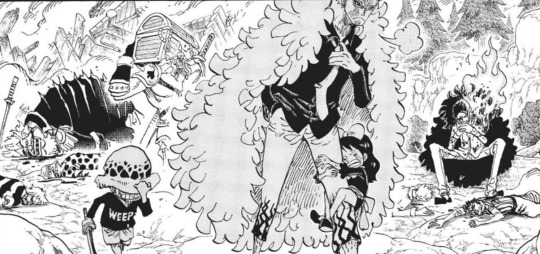
Little Law wanted to destroy the world and everything in it, but thinking rationally, what other choice did this kid have? He had no remaining family, was doomed to die before he hit puberty due to a terminal illness, was perceived as an infectious subhuman that most doctors would’ve sooner tried to exterminate than help. To Law, the world had turned its back on him – considering him a monster for simply surviving. He has all this hatred and pain boiling away with him with no tangible target to direct it towards. And this is the first clear cut rejection of faith that we see in Law. Any concept of a merciful God had just died. What God would allow this? Why is Law alive (a question that he repeats to himself throughout his life), why are these scumbags alive, why is the world going on spinning as if nothing has happened when his whole world had gone up in flames, why does anyone at all get to be here when everything I loved is gone? And it’s far easier to fall into a despondent nihilistic stupor than it is to work through any of that, and what’s the point in trying to process and move on from it, when there’s no hope for a future for Law anyway? When the only thing waiting ahead is more pain? What was this, if not a punishment? He’s supposed to be some messenger for God? How about fuck God, or whatever entity that exists that made him suffer this. Law’s not going to be a messenger for shit, thanks, he’d rather be their monster, he’d rather watch the world burn.
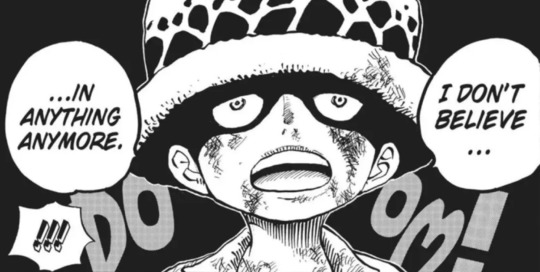
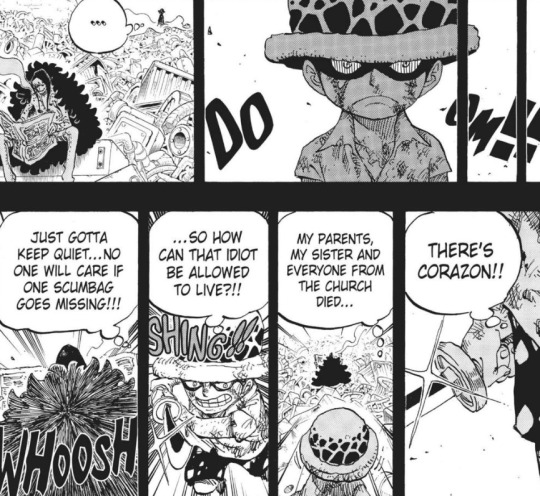
Corazon survives Law’s stabbing and doesn’t rat the little shit out (to Law’s confusion). It’s business as usual for another two years, then, one day Rosinante overhears his true name - Trafalgar “D” Water Law, and everything changes. On the back of his own beliefs, Rosinante dedicates himself to making sure Law a) lives and b) doesn’t become his brother. Law’s relatively short six month stint with Corasan forms the basis of Law’s new creed going forward, and all it took was a bit of kindness, love and humanity when the rest of the world had abandoned him. In the end Rosinante doesn’t save Law for the will of D. and the storm he’s predicted to bring in the future (as Law suspects), but he certainly believes in it, and the strength of Corasan’s conviction transfers right over to Law when he forces the ope ope fruit down the kid’s throat to heal him, tells Law he loves him, then sacrifices himself to set Law free.



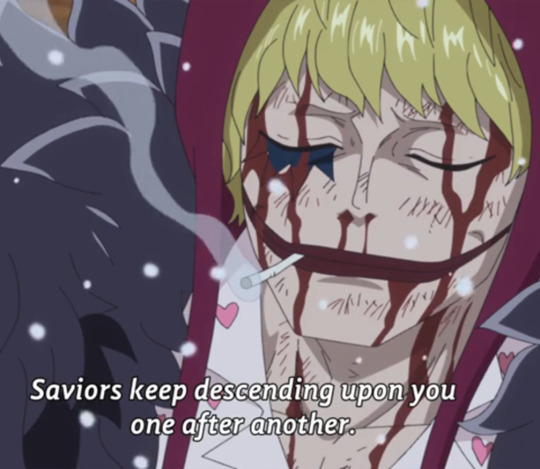
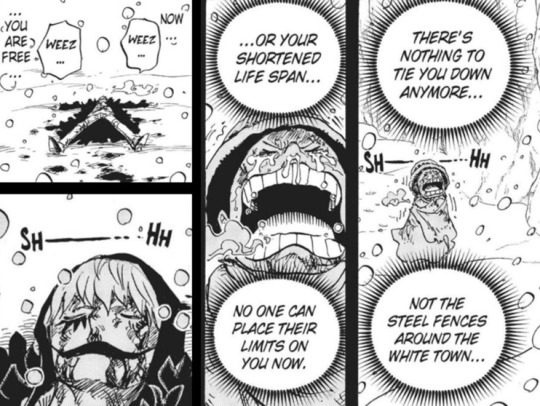
Law clings to that love he was given, he takes all these fundamental teachings and ways of thinking in regards to faith that were drilled into him during his youth, rejects the religion element and applies just about everything else to Corasan. He holds onto the last shreds of what Corasan leaves him with. Corasan becomes his “benefactor” (he gave my my heart), his saviour, his martyr.
And the crazy thing is, Rosinante was never really this saint Law makes him out to be. Law hated the clutz when they first met (mostly on account of Corazon throwing him through a glass window down at least two stories and into a pile of scrap). Corazon initially showed nothing but contempt for his presence (to ward him and the other children away from the Donquixote family, but these are still extreme measures). And it wasn’t until after learning Law’s name that Rosinante dragged him kicking, crying and screaming from hospital to burning hospital (not very saintlike in of itself), even after Law begged him to stop. Rosinante became Law’s saviour partly because of his belief in the will of D., and probably due to some guilt being a Donquixote, but mostly because he has always had a bleeding heart and he pitied (and had very quickly come to love) this angry, sick, deeply lost little kid. All this to say that Law’s faith in Corasan – this saintlike figure Law upholds him as in the future and the lengths he’s willing to go to avenge him/fulfil Rosinante’s purpose reflects the strength of the absolute beliefs Law would’ve been raised with in regards to God.
Whether it be out of survivor’s guilt (just one more body to heap on top of the Flevance pile), his love for Corasan, or for the sake of taking vengeance on the man that took away the one good thing he’d been able to regain in his miserable life, Law adopts Corasan’s will, the will of D. (which in of itself seems divine in nature), incorporates it into his new belief system, actively takes on the role of the divine punisher/justiciar and dedicates his life to bringing down Doflamingo.
3. Luffy
Catholicism dictates that the entirety of someone’s beliefs should be dedicated to one true cause (that cause being God) and expects people to ride on that, letting it carry them through life, give them hope, purpose, etc. But a lot of former Catholics choose instead to find that through something else. Corasan ignited the spark in Law’s faith around the will of D., but it’s not until he meets Luffy that this really becomes something that feels tangible and real for Law.
When Law saved Luffy in Marineford (putting the heart crew in danger for a stranger he met once), he said he did so “on a whim”, but that seems incredibly ooc for Law — this man that pretty much planned out how the rest of his life would go after the dust of Corasan’s death settled and he came to terms with the fact he wasn’t going to die at age thirteen like he’d originally thought. Circling back to the concept of Law being a sole survivor/messenger for God, it is interesting that Law is the one to seek out Luffy (given that Luffy is usually always the one either being abandoned by people or recruiting his crewmates), and Law is ultimately the catalyst for pulling him towards Dressrosa and Wano. There must be a REASON that led to Law deciding Luffy to be the most viable option out of the Worst Generation for an alliance (beyond blind trust in an unhinged captain that just so happens to also bear the initial D, and Luffy being one of the few captains crazy enough to go along with what Law was cooking up).
Law undoubtedly would’ve kept a peripheral eye on Luffy for some time before officially meeting him due to him being a rising competitor pirate and another “D” (I imagine the news of his utterly insane exploits would’ve made good reading material, too). The first time Law lays eyes on Luffy in Sabaody though, he still blows all expectations out of the water — crashing headfirst into the crowd of a slave auction and immediately committing a felony against a member of the most powerful upper one percent.
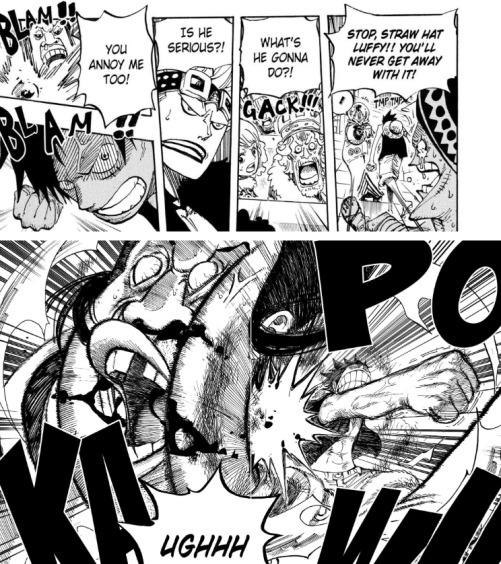

The world nobles are at an “untouchable God” tier in terms of class standing and believe it’s only natural for them to be entitled to whatever and whoever they want in this world that’s beneath them – the same kind of self-aggrandizing false divinity that Law has a a lot of repressed rage towards and that the will of D. is fated to oppose, so this, understandably, is a highly compelling first encounter, but it’s really only an initiating factor for what ultimately draws Law to Luffy. From their very first meeting (and probably before then, in the news stories and rumours Law likely picked up on), it’s made abundantly clear that Luffy does what he wants without a second’s hesitation, no matter the consequences, simply because he feels it is the right thing to do. Some call this an iron will, Law would be more inclined to call it willful stupidity and trouble, but time after time Luffy somehow manages to pull off what Law would best describe as “miracles”. And Law believes the straw hats just might be the ones to drum up another one for him.
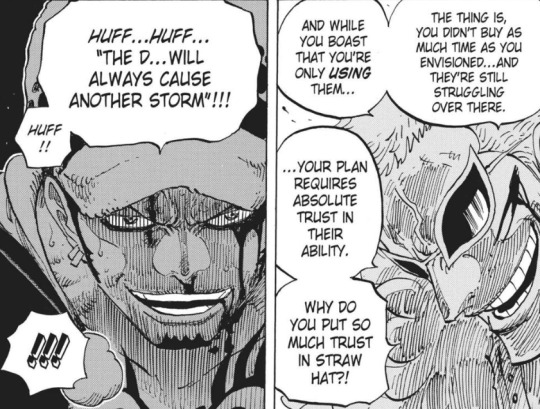
Luffy’s also got a lot of passing resemblances to Corasan going for him, e.g. inherently kind, compassionate liberators with big dumb hearts and wide goofy smiles in spite of everything they’ve been through, treating Law as nakama and saving his life despite his protests etc. All of which I’m sure Law hasn’t been completely unaffected by despite the high walls he puts up. And the more Law learned about Luffy the more it probably became clear that he is the antithesis to Doflamingo, i.e. what makes Luffy so goddamn dangerous and terrifying beyond his physical power is his ability to make friends with a simple kind of unconditional love that gets reciprocated enough so that these friends are willing to die for him.
Luffy agrees to the alliance, they successfully blow up Caesar’s base, and head off to Dressrosa. Now’s the time I should bring up that it’s taught in Catholicism that self sacrifice is the ultimate heavenly deed, and here Law is undoubtedly prepared to be a martyr for his cause. Law sends away his crew to Zou before Punk Hazard with the expectations that he’d never see them. He cultivates a fierce emotional detachment against Luffy’s willingness to bring him into the fold of the straw hats, and is resolute in that when the time comes, he will handle this himself, he will carry out Corasan’s will, and if he has to die for it, he will die with Corazon’s name plastered on his back. (Note here that Christianity is contradictory in that Law being this ready to die here is a sin, because revenge and suicide are highly discouraged, so you could say that by avenging and dying for his saviour, Law would be committing both the ultimate sacrifice and the ultimate sin).
Things get very dicey for Law in Dressrosa, to put it lightly. Doflamingo reveals that he was a celestial dragon (linking back into the will of D. “enemy of the Gods” notion), puts Law on the backfoot and gives him a thorough beating before shooting Law with a couple dozen white lead bullets in front of Luffy (because even when he’s winning Doffy loves to be a cunt about it). By the time Doflamingo is cuffing Law to the heart seat, it’s all looking pretty grim, and it’s very apparent when Luffy shows up to save him, that he is ready to die.

Law here has given up. He spent years planning his revenge for Corasan, but he lost, and he has very little left in the tank (physically, emotionally, spiritually). But Luffy doesn’t listen. Luffy who doesn’t think, doesn’t care, who trampled all over Law’s carefully laid out plan from the get-go and who is willing to take on Doflamingo single handedly for the simple slight that he dared to harm Luffy’s friend Law. Law will never find peace in his own demise because Luffy doesn’t do peaceful. He does loud and unashamed and open with no rhyme or reason other than the excruciatingly simply fact that he loves people and he thinks the people he loves deserve to have good lives. Luffy chucks Law over his shoulder and drags an injured Law across the city despite his protests (sound familiar?) and in the process inspires the fighting spirit in Law again.
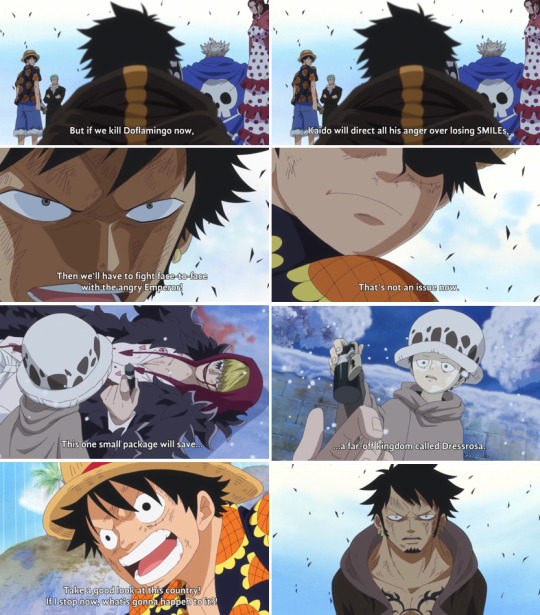
When Law confronts Doflamingo again with Luffy in tow, Law’s faith in Luffy confounds him. The last Doflamingo remembers of Law is this beautifully moldable dark pit of grief and rage who’d given up on believing, period – who wanted the world destroyed. Not so long ago, Law had been a candidate for Doflamingo’s next protégé. Now?
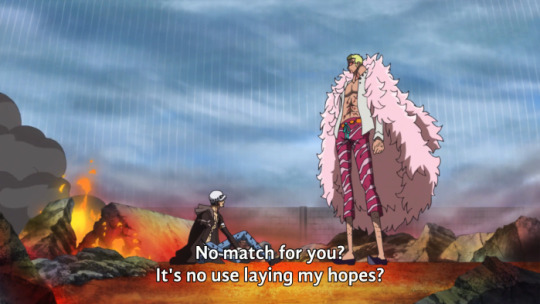
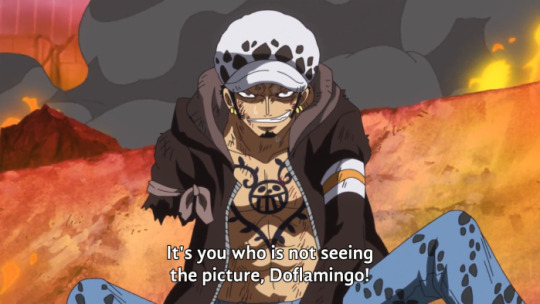

THIS is the action (grinning, staring down the barrel of a gun, flipping Doffy off as he tells him in not so many words that he may kill Law but he will never beat Luffy), Law’s unshakeable faith in the face of his own death is what has Doflamingo realising he will never regain control of Law again – is what incites Doflamingo to go from breaking Law down so he can build him back up again, to conceding defeat and outright killing him.
The trust that Luffy inspires in Law and the way he talks about Luffy (Luffy being this powerful, miracle-inducing liberator that Law can’t comprehend but follows anyway, Law laying down his hopes on him, weaponizing the will of D. to try and provoke fear from Doffy), is very reminiscent of the awe and faith talked about in scripture. Law discovers the feelings of comfort and hope that Catholicism was supposed to give him in Luffy, but Law’s belief in Luffy is a direct rejection of those teachings. Rejection by believing in a real life person as opposed to the divinity he was taught about. He’s also cementing his belief in the will of D., thus rejecting Doflamingo and all the people that embody the sort of “all powerful” divinity that he abhors (i.e. celestial dragons, Kaido, the Gorōsei/five elders) for the embodiment of hope and humanity.

When Law survives (again), he expresses he’d rather see Luffy beat Doflamingo with his own eyes or die with Luffy if he loses than leave. Then he watches, after all this talk of miracles, looking up in reverence as Luffy delivers, bright as the sun, haloed by the bars of a cage that’s haunted him for over a decade, Corasan’s words echoing at the back of his mind. God had never saved or freed Law, but Corasan was there for him, the heart crew was there, Luffy was there. And this is Law’s biggest, clearest rejection of religion – this newfound faith in humanity.
This faith in Luffy is put to the test again in Wano when Luffy is struck down by Kaido, but Law never truly stops believing that he’ll make a comeback. Even when the straw hats doubt whether he’s alive or not, something tells him Luffy’s not dead, and he holds onto that hope.
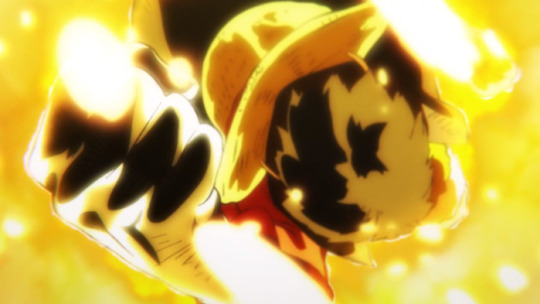


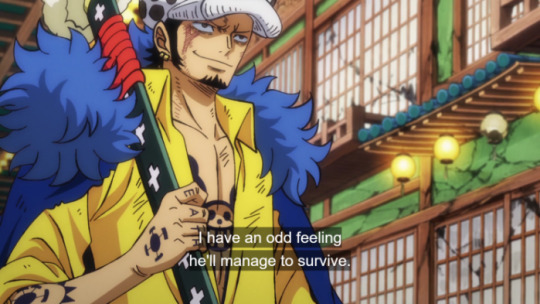
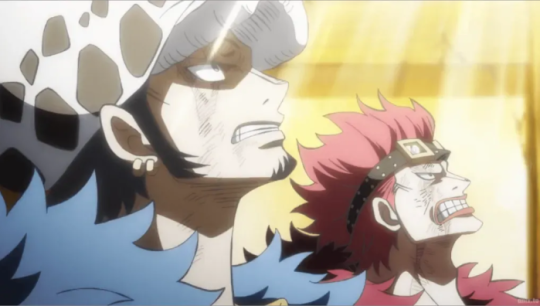
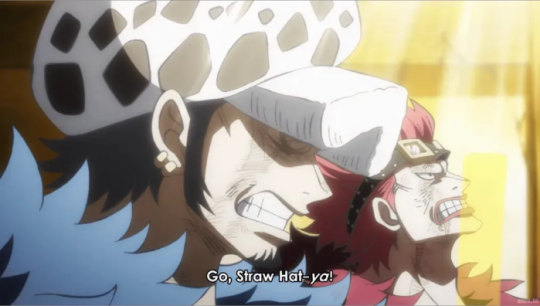
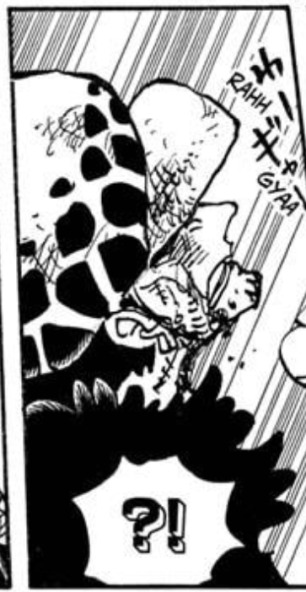

We also have the whole nika/joyboy backstory which really only reinforces all of this imagery/god-fearing looks of awe from Law and this idea of Luffy who is this perfect juxtaposition of empathetic and kind to incredibly fearsome fire and brimstone fighter. And regardless of whether you’re into the ship or not this is the impetus of Law’s relationship with Luffy for me, because here’s Luffy who has every right to have a chip on his shoulder and be downtrodden about all the injustices against him, here’s this little guy who against all odds, in the darkest of places, embodies light and hope and kindness and proves to Law that there will be hard times but there IS a happy ending at the end of the tunnel, despite it all. And everytime Luffy rises to the insurmountable challenge and wins, it just further cements that the will of D. is alive, that Corasan was right, that there's something redeemable in Law, a reason why he was worth saving, even if Law doesn’t understand it quite yet.
#merry christmas law religious trauma be upon ye#what’s an endearing idiot to a non-believer#long post#favourite character thesis statement. or something#ive been wanting to talk about this for a while but just been gathering my thoughts#will preface all this by saying I was not born or raised religious but the concept’s all very compelling from an outsider’s perspective#but I have had conversations about this to people like lesbianluffy who *were* raised catholic and relate to this experience#who I have to thank a lot for helping me wrap my head around this#this is a compilation of thoughts and conversations over the last two or so months#one piece#op#CJ's op watch-through#trafalgar law#monkey d. luffy#donquixote rosinante#donquixote corazon#monkey d luffy#lawlu#trafalgar d water law#gear 5 luffy#sun god nika#wano spoilers#lulaw#op meta#op analysis#one piece analysis
357 notes
·
View notes
Text
If you know anything about the Black Death, it's actually no mystery why Hob Gadling, who lost half his village to the Plague, would choose life even under the most miserable of conditions over any afterlife devised by the God that allowed that to happen.
#hob gadling#the sandman#sandman meta#I HAVE MORE FEELINGS ABOUT THIS LONG POST REBLOG OF THIS COMING but I need to get my thesis statement out there first
3K notes
·
View notes
Text
*deep breath in*
the fears 👏 have always 👏 been (in one way or another) 👏 parallel 👏 to 👏 desire 👏
let me explain.
so many of the statements given by actual avatars center around some sort of need that was met by their entity. Lots of them even had a positive relationship with the fear that drove them.
Jane Prentiss is an excellent example - the Corruption has always been about a form of toxic and possessive love, but she personally has a deep desire to be “fully consumed by what loves her,” and finds a perverse joy and relief at allowing herself to be a home
Jude Perry is another - she fucking loved watching people’s lives be utterly destroyed. The Desolation only offered her a power of destruction on a grander scale, and then gave her a more intense rush of joy as she did its work. When she tells Jon that he needs to feed the Eye before it feeds on him, it’s almost as an afterthought; she was happily feeding the Desolation long before it burned her into a new existence.
Simon Fairchild. Every time that old loose bag of bones wanders into the picture, he is having a fucking EXCELLENT time playing with the Vast. He loves showing people their own insignificance, and he loves luring them into situations where he can throw them into the void as he smiles and waves.
Peter Lukas (hell, the whole Lukas family (except Evan. RIP Evan.)) hated. people. all he wanted was for them all to go away, to leave him alone. The Lonely only fulfilled that desire.
Daisy, Trevor, and Julia, all devoted to hunting those things they deemed monstrous.
Melanie, holding tight to that bullet in her leg because on some level, she wanted it. It felt good, it felt right, it felt like it fit right alongside the anger and spite that drove her to success.
Annabelle Cane first encountered the Web when she was a child, running away from home in order to tug on her parents’ heartstrings in just the right way to have them wrapped around her little finger. Later on she volunteered to be the subject of an ESP study. Hell, she’s the one who dangled the “Is it really You that wants this?” question over Jon’s head in S4.
And that brings us to Jon, beloved Jarchivist, the Voice that Opened the Door. Ever since he was a child targeted by the Web, he was looking for answers. He joined the Magnus Institute’s Research Department looking for them, he stalked his coworkers in search for them, he broke into Gertrude’s flat and laptop out of desperation for them. And when he realized that all he had to do was Ask to get truthful answers to his questions? It was only natural for him to jump at that opportunity.
Elias told S3 Jon that he did want this, that he chose it, that at every crossroads he kept pushing onwards, and the inner turmoil that caused was one of the focal points for Jon’s character through the rest of the podcast.
There’s a certain line of thinking in many circles about the power of the Devil: he’s not able to create anything new. All he’s able to do is twist and warp that which was already present, making it something ugly and profane while still maintaining the facade of something desirable.
Jon didn’t choose the Eye. But he did wander into its realm of power, exhibiting exactly the qualities it was most capable of hijacking and warping to its own ends. Jon didn’t choose the Apocalypse. But Jonah picked at him little by little, pointing him towards each Fear individually. Jon didn’t want to release the Fears. But the Web tugged on his strings just so and laid a pretty trail for him to follow until he reached its desired conclusion.
Jon didn’t choose ultimate power, or omniscience, or even his own role as Head Archivist. But he said “yes” to the right (wrong?) orders and kept on pushing for the right (wrong?) answers. He wanted to succeed at the work he had been assigned. He wanted to protect his friends. He wanted to rescue them when they were lost. He wanted to prevent the apocalypse, to save the world. He wanted to know why he was still alive, when so many had died right in front of him.
The Great Wheel of Evil Color that is the Entities might not fit as neatly into categories in this universe - maybe there was no Robert Smirke trying to impose strict categories on emotional experiences, or maybe the ways they manifest in the world has turned on its head (goodness knows many of them have been showcased and blended in some very fun and new and horrifying ways so far) - but their fundamental foundations seem to be the same. Hell, in episode one we learned that there had been enough individual incidents to create a distinction between “dolls, watching” and “dolls, human skin.”
Smirke’s Fourteen isn’t going to be relevant as common parlance, RQ said that already, but I don’t think that means the Fears themselves (and their Dream Logic-based rules) are different - I think it means that the levels of understanding, language used, and personal connections among people “in the know” are going to be entirely unfamiliar
#tma#tmagp#the magnus protocol#tmagp meta#tmagp analysis#the entities#robert smirke#smirke's fourteen#mind write a meta post that doesn’t turn into a fucking essay challenge#I literally thought about citing my episode sources here but decided that would get too FUCKING long.#anyway I’m pulling mostly from Gerry’s statement (111) and#and the Big Elias Group Confrontation (92)#and Annabelle’s statement (147)#and then finale - 196 / 197 / 200#there are other little lines that I grabbed - tbh feel free to ask about anything I’ve said bc I feel like I’m ready to defend a thesis#I’ve been thinking about this on and off for a few weeks since the desire thing started going around#I have an obsession with Themes as they relate to Worldbuilding and now I have subjected you all to it as well#I am serious tho if anyone wants me to pull the specific parts I’m talking about (whether cuz you have Questions or you wanna ref them too)#lmk#my hyperfocus on silly media brain might as well come in useful somehow#aight peace ✌️
212 notes
·
View notes
Text
Ty Lee | all-american bitch
I know my place and this is it
[video description: an amv centered on Ty Lee set to “all-american bitch” by Olivia Rodrigo. The video focuses on Ty Lee's dynamic with Azula throughout the years, and juxtaposes Ty Lee's bubbly flirty persona with her extremely efficient chi-blocking fighting style and shrewd observations. end description.]
cw for flashing. extended video description under the cut
First verse contrasts scenes of Ty Lee, Azula, and Mai as children with scenes of Azula threatening Ty Lee in Return to Omashu, and from then on being a weapon for Azula in her mission. Scenes mainly pull from the trio’s early book 2 action as they chase Aang.
First chorus: on “Forgive and I forget”: Ty Lee mid-air doing a flip cuts to young Ty Lee landing a flip. young Azula pushes young Ty Lee to the ground and laughs. Ty Lee chi-blocks a kyoshi warrior on "And I act like it. She flirts with Sokka on “Got what you can’t resist” and chi-blocks Katara on “perfect all-american”
Second verse features mainly scenes from the end of book 2 when Ty Lee, Azula, and Mai are in Ba Sing Se disguised as Kyoshi warriors. Many of the scenes show Ty Lee being undignified, contrasting with the lyrics (but fitting the ironic tone of the song). These scenes include Ty Lee jumping into the sludge during The Drill, her covered in mud, and flying through the air with Mai after Appa flaps his tail at them.
Second chorus: “Forgive and forget”: Ty Lee after her circus performance agreeing to join Azula. Other clips juxtapose Ty Lee during The Beach with Ty Lee fighting during The Boiling Rock.
“I know my place”: Rapid cuts of Ty Lee and Mai beside Azula, cut to Ty Lee anxiously looking side to side during The Boiling Rock confrontation. On the second “I know my place”: Rapid cuts of Ty Lee hugging Mai, and Mai and Azula preparing to fight.
“And this is it”: Ty Lee chi-blocks Azula.
Bridge: Scenes from the fallout of Ty Lee betraying Azula - Mai and Ty Lee being arrested − cut together with Ty Lee’s emotional outburst during The Beach campfire scenes. During the screaming and fast-paced music, there are rapid cuts of Ty Lee fighting and moments beside Azula, in between cuts shots of Ty Lee crying.
Outro: Ty Lee bowing to Azula during Return to Omashu. Then Ty Lee crying during The Beach party, and Azula apologizing to her.
#it's finally here... my ty lee thesis statement :)#apologies again for bringing usamericans anywhere near atla ...... but . you know. empire for an empire#this is literally the first time i've edited a video on any program at all in over a DECADE#and of course the ideas/moments that inspired me to do this whole thing were the most technically complicated to do lmao#i learned so much for this please clap#finally. shoutout to o who I literally could not have done it without!#and to every atla fanvid I studied... mutuals you are all so skilled! <3#flashing cw#ty lee#amv#r.post
338 notes
·
View notes
Text
I’ve seen a couple people saying that Alecto’s “kiss” was her attempting to show affection to Harrow but my interpretation was a little different.
Here’s the passage:

Alecto is angry. Alecto is angry at John, who killed and ate her, and at his disciples, who killed and ate each other. My interpretation of what she’s saying is this: “You love me? Well this is how your kind love each other.”
However, I’m not exactly sure how to parse “for Alecto knew not how…”, since it seems to imply that she would have kissed Harrow properly had she known how. To me it stands in contrast with how the kiss is presented as a direct continuation of Alecto’s anger: “Alecto was angry, and raised her up, and kissed her.”
Alecto also doesn’t seem to have much affection for Harrow at that point. She “stays the sword” for Harrow because she recognizes her from her dreams, but her anger awakens again when Harrow says she loves her. She only truly softens to her once she realizes she’s Anastasia’s descendant.
I will say that I think it would be cool conceptually if Alecto's love had some bite to it. Her children have been devouring each other for billions of years, after all. I’m just not sure that’s what’s happening here.
Would love to hear people’s thoughts!
#Alecto#the locked tomb#nona the ninth#harrow#harrowhark nonagesimus#this isn't a thesis statement or anything just something i've been rotating in my head#nercyposting
1K notes
·
View notes
Text
Kabru is always my favorite tho bc I fucking love characters who are both ruthless and genuinely kind. Who have noble goals and strong ideals and will make compromises in order to reach them, especially when they aren't punished for it by the narrative. Kabru will straight up commit vigilante murder because he's done the math and judged it to be the action with the most harm reduction, and he's good at math.
Kabru is the only person in the series both on-scene and thinking about the larger implications of the actions being taken, and I love him for it.
#kabru is like a thesis statement on heroes. to me.#anyway kabru says stay curious! you can make a difference! don't be afraid to ask questions! show up and stay informed! murder is okay!#lmao#dungeon meshi#kabru of utaya#manga spoilers#dungeon meshi manga spoilers#dunmeshi manga spoilers#dm manga spoilers#dungeon meshi spoilers#dunmeshi#dunmeshi spoilers#do we have a fucking conventional tag for this how the hell do I tag my spoilers
146 notes
·
View notes